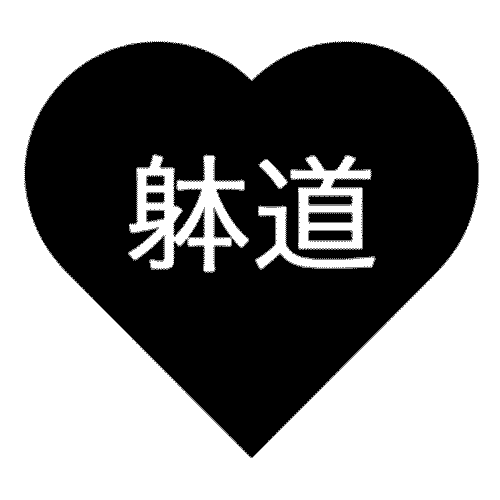Everyone knows that breathing is important in Taido, just as in... well, pretty much everything. Learning to use your breath is a big part of Taido's taiki ("body energy") idea. Every hokei includes techniques for learning to master the breath, and we all know what it feels like to be "out of breath." This tip is about one half of breathing.
Remember to Relax
One of the reasons that exhaling is important is that it helps us to relax. Everyone has experience with this phenomenon in the form of yawning when we shift gears to prepare for sleep. When we need sleep, the body begins to progressively relax in order to reduce energy consumption and lower core temperature.
In much the same way, the "hold your breath and count to ten" method of anger management works by forcing a full, deep exhale at the end. This helps us relax and let go on anger and frustration.
Exhaling is a physiological trigger for relaxation, so it naturally works in tandem with the first tip.
Kiai!
Of course, the most obvious example of a focused exhale in Taido is the kiai. Done correctly, the kiai is short, focused, and doesn't strain the vocal chords. If you get a sore throat from doing too many loud kiai, you should practice relaxing your mouth and neck while forcing the air out from your belly.
When you kiai during practice, try to think of it as a sharp exhale rather than a shout. Most of us kiai quite often, so changing this emphasis (from shout to exhale) offers many extra chances to practice exhaling during practice.
Stop Holding Your Breath
Again, we all have had experiences where we stopped breathing, and the results are never positive.
Often, when excited or threatened, we'll take a sharp inhale and forget to let it go. After a few seconds of holding our breath, we may feel lightheaded or simply stressed out. Part of this has to do with the increase in blood pressure when we hold our breath. The cure is to simply exhale.
How many times have you been moving at a frantic pace (either in practice or in the real world) and found yourself gasping and panting? It's a physiological stress reaction that may have served a purpose in the early days of our species. But it just gets in the way when we're trying to learn.
Since breath-holding always begins with an inhale, the best way to avoid it is by remembering to exhale. Exhale whenever you kick or punch. Exhale when you complete your kamae. Exhale when you are resting between techniques. Just exhale, and do it often. The more you remember to exhale, the easier it will be for you to remain relaxed.
Focus on the Exhale
If you just remember to exhale, your body will inhale naturally. It's a simple fact of biology that our bodies need oxygen to continue living, so don't worry about inhaling - your body will handle that for you.
Try it right now: exhale.
Exhale as much as possible. Now relax. What happened? Of course, you inhaled, but without having to try. This is called passive inhalation.
Your body expels air by compressing the lungs and releasing that compression results in a natural inhalation. You never have to worry about inhaling. It will come if you relax. Your body knows what it needs to survive, and it will always override your instructions when survival is at stake.
You cannot prevent your body from inhaling when it needs to. So just let it happen. Don't worry about it. Inhalation is taken care of, so you can put your attention on exhalation.
Focus on the exhale, and let this become a trigger for relaxation. Experiment with this in your training for a few days and see if you don't feel more relaxed and move more smoothly.
